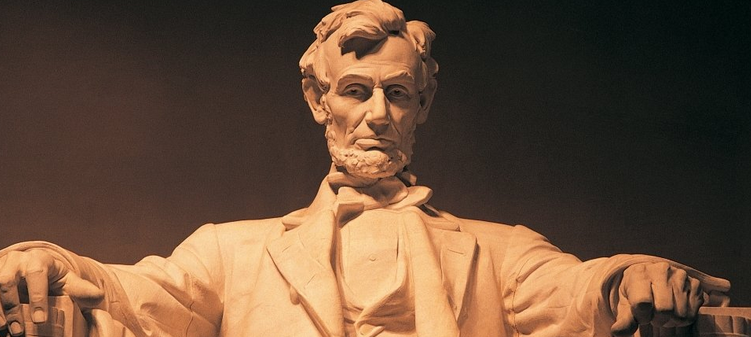Abraham Lincoln’s life and presidency are a lesson in great leadership qualities.
Some of his abilities were natural; others he consciously developed over the course of his life. Many are still relevant today.
Here is a sampling:
“If I were to try to read, much less answer, all the attacks made on me, this shop might as well be closed for any other business. I do the very best I know how–the very best I can; and I mean to keep doing so until the end.” –The Inner Life of Abraham Lincoln: Six Months at the White House by Francis B. Carpenter
Lincoln’s leadership was deeply grounded in his values and integrity. At the core of Lincoln’s work were the values of liberty and equality. Those values shone through in his words. More important, they were reflected in his actions. It was his closely held principles that guided him through some of the most difficult decisions that a leader could face. His reputation for honesty and humility added even more credibility to his bearing.
“Let us have faith that right makes might, and in that faith, let us, to the end, dare to do our duty as we understand it.” —Cooper Institute Address, February 27, 1860
The strength of Lincoln’s vision of America has probably never been matched. And while he was never reluctant to preach that vision, he would have been a far less memorable figure had he stopped there. Instead he used his vision, his principles, and his leadership to inspire those around him to action.
“Leave nothing for tomorrow which can be done today.” —Notes for a law lecture, July 1, 1850
Part of Lincoln’s ability to convert passion into action was his careful attention to detail and strategy, paired with an unstoppable work ethic. His law partner, William Herndon, noted that Lincoln was “always calculating and planning ahead” and described his ambition as “a little engine that knew no rest.”
“Adhere to your purpose, and you will soon feel as well as you ever did. On the contrary, if you falter, and give up, you will lose the power of keeping any resolution, and will regret it all your life.” —Letter to Quintin Campbell, June 28, 1862
In his early years, Lincoln tried several different careers in his quest to succeed in life. He ran a general store and was a postmaster, a surveyor, and eventually a lawyer and politician. Along the way, he developed the enviable ability to persevere and learn from his own failure.
“Stand with anybody that stands right. Stand with him while he is right and part with him when he goes wrong.” —Speech at Peoria, Illinois, October 16, 1854
Lincoln understood that great works can’t be accomplished alone, and he gained trust and respect by building strong relationships and alliances. Always true to his word, he was reliable in partnership as long as the other party was as well.
“I am rather inclined to silence, and whether that be wise or not, it is at least more unusual nowadays to find a man who can hold his tongue than to find one who cannot.” —Remarks at the Monogahela House, February 14, 1861
Though Lincoln was an outstanding writer and public speaker, he was even more adept at the art of conversation. He could talk to anyone and had a terrific sense of humor. Conversation was Lincoln’s chief form of persuasion–and like any good conversationalist, he knew how to listen as well.
Abraham Lincoln listened, paid attention and established trust. He built strong relationships and found time for others. He chose his words carefully and made sure his actions followed. And, above all, he fueled his leadership with an unswerving commitment to something greater than himself.
Most of us are called to much smaller tasks than saving a nation on the verge of disintegration. But if we bring Lincoln’s principles to bear, we give ourselves every advantage in whatever we set out to do and it can alter our lives.
N A T I O N A L B E S T S E L L E R
THE LEADERSHIP GAP
What Gets Between You and Your Greatness
After decades of coaching powerful executives around the world, Lolly Daskal has observed that leaders rise to their positions relying on a specific set of values and traits. But in time, every executive reaches a point when their performance suffers and failure persists. Very few understand why or how to prevent it.
Additional Reading you might enjoy:
- 12 Successful Leadership Principles That Never Grow Old
- A Leadership Manifesto: A Guide To Greatness
- How to Succeed as A New Leader
- 12 of The Most Common Lies Leaders Tell Themselves
- 4 Proven Reasons Why Intuitive Leaders Make Great Leaders
- The One Quality Every Leader Needs To Succeed
- The Deception Trap of Leadership
Photo Credit: Getty Images
Of Lolly’s many awards and accolades, Lolly was designated a Top-50 Leadership and Management Expert by Inc. magazine. Huffington Post honored Lolly with the title of The Most Inspiring Woman in the World. Her writing has appeared in HBR, Inc.com, Fast Company (Ask The Expert), Huffington Post, and Psychology Today, and others. Her newest book, The Leadership Gap: What Gets Between You and Your Greatness has become a national bestseller.
